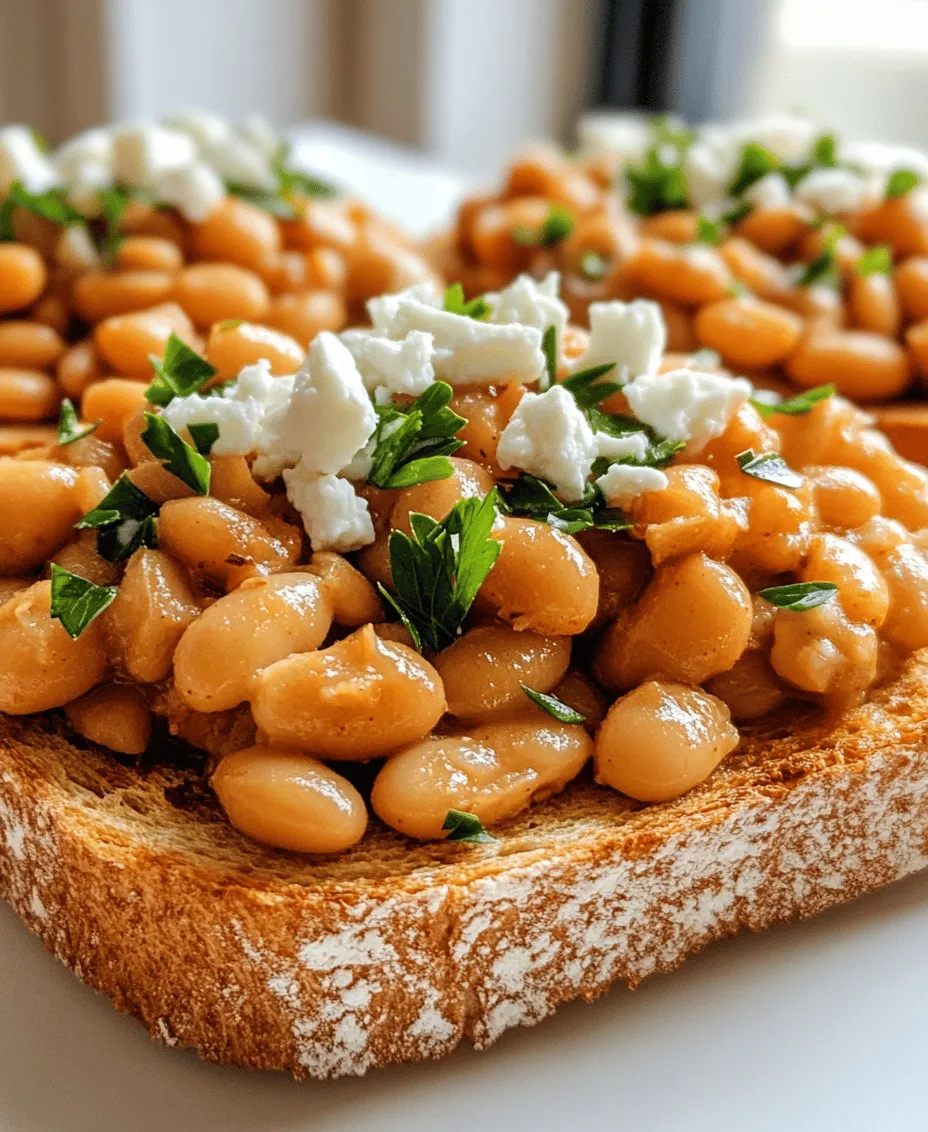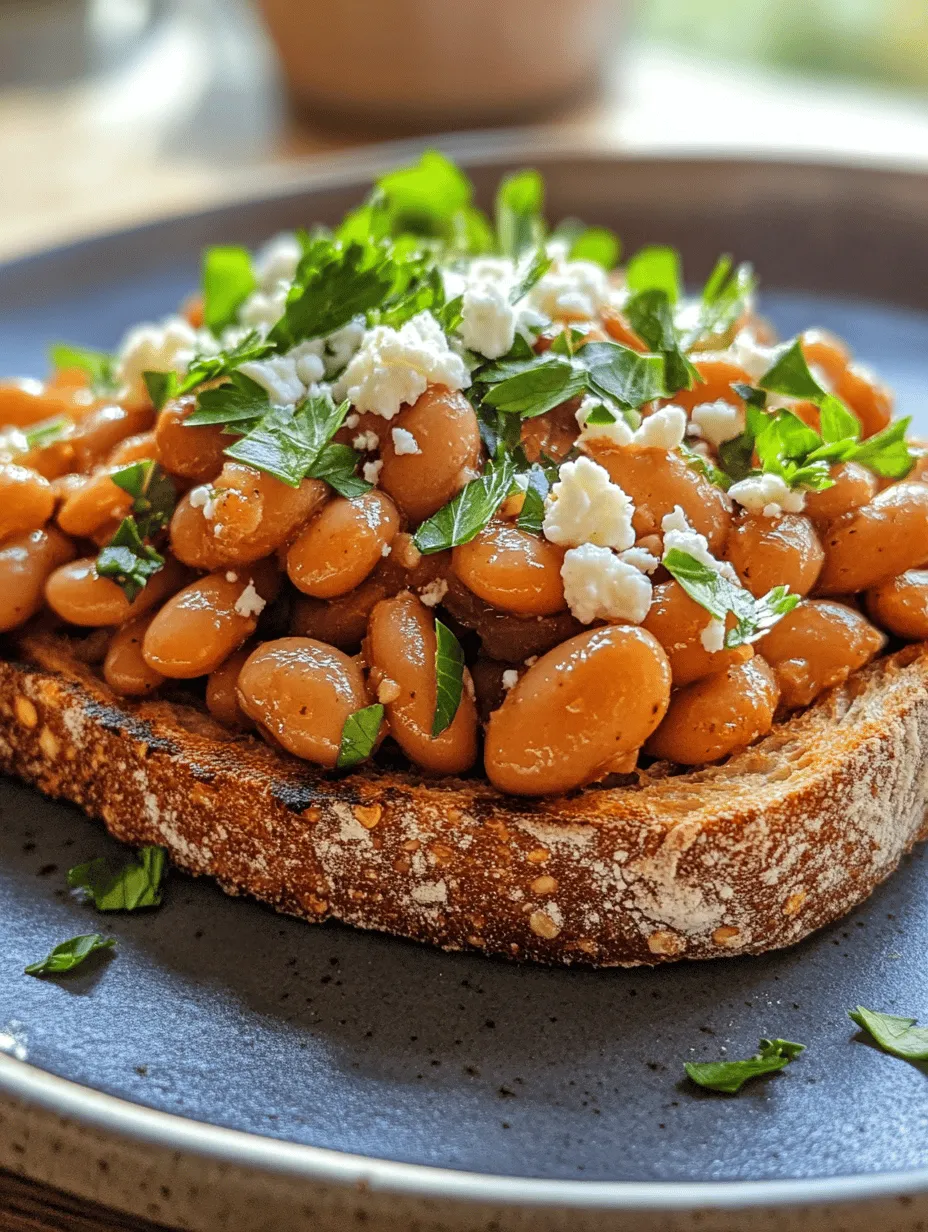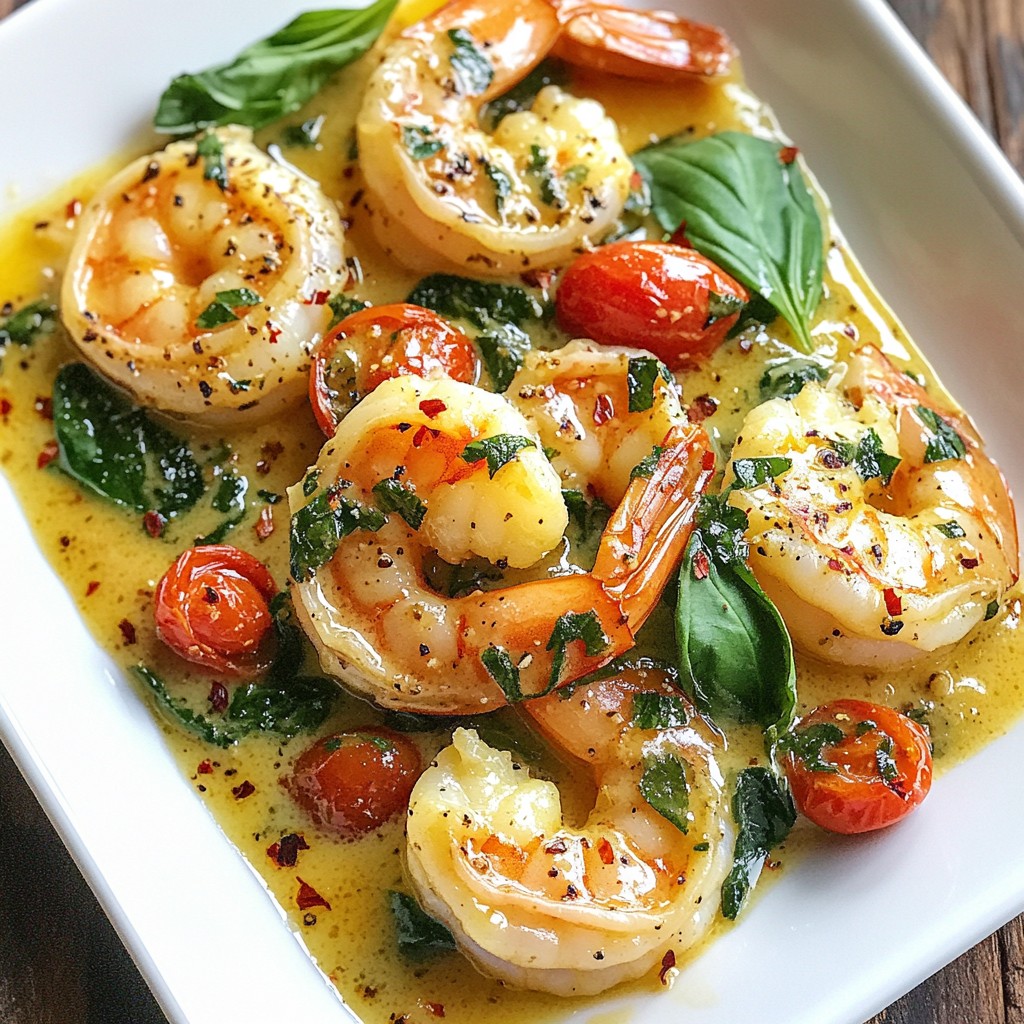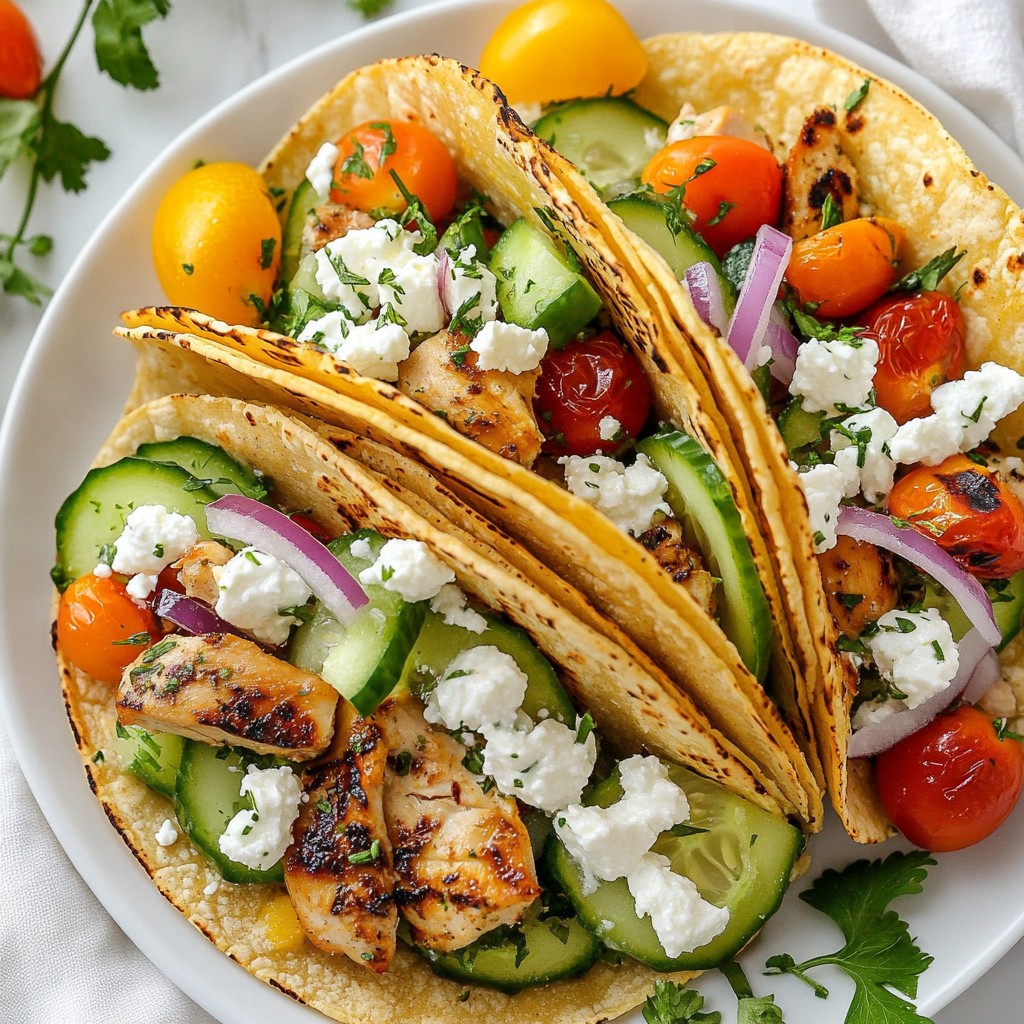Introduction
Beans on Toast is a classic dish that has transcended borders and cultures, becoming a beloved staple in many households. This nutritious and versatile brunch option combines the simplicity of baked beans with the comforting crunch of toasted bread, creating a meal that is not only satisfying but also packed with nutrients. As the emphasis on healthy eating continues to grow, this recipe stands out as an excellent choice for those seeking a wholesome breakfast or brunch that caters to various dietary preferences.
One of the key reasons Beans on Toast resonates with so many is its ability to meet diverse dietary needs. Packed with protein, fiber, and essential vitamins, it provides a well-rounded meal that fuels your day. The use of pantry staples means that you can whip it up in no time, making it perfect for busy mornings or impromptu brunch gatherings. With minimal preparation and cooking time, it ensures you can enjoy a delicious meal without a fuss.
Whether you’re a busy professional looking for a quick breakfast or a family seeking a nutritious meal, Beans on Toast can deliver on all fronts. In this article, we’ll delve into the nutritional benefits of the beans used in this dish, explore its versatility, and provide a detailed ingredient breakdown to help you create your own Beans on Toast Brunch Delight.
Understanding Beans and Their Nutritional Benefits
Beans are a powerhouse of nutrition, making them an ideal ingredient for a hearty brunch. In this recipe, we will focus on butter beans and cannellini beans, both of which bring a creamy texture and rich flavor to the dish.
Butter Beans and Cannellini Beans
Butter beans, also known as lima beans, are larger and have a smooth, buttery texture that melds beautifully when cooked. Their mild flavor allows them to absorb the spices and seasonings they are cooked with, making them a delightful addition to any meal. Cannellini beans, on the other hand, are smaller and have a slightly nutty flavor. They are often used in Mediterranean cuisine and are known for their firm texture, which holds up well in various dishes.
Nutritional Profile
Both butter beans and cannellini beans are nutritional powerhouses. They are rich in protein, making them an excellent alternative to meat for those following a plant-based diet. A typical serving of these beans provides:
– Protein: Approximately 7-8 grams per half-cup serving, essential for muscle repair and growth.
– Fiber: Around 6-7 grams, which supports digestive health and helps maintain a feeling of fullness.
– Vitamins and Minerals: They are packed with essential nutrients, including iron, magnesium, potassium, and B vitamins, which play a crucial role in energy metabolism and overall health.
Health Benefits
The health benefits of incorporating beans into your diet are numerous. Regular consumption of beans can support heart health by lowering cholesterol levels due to their high fiber content. They are also beneficial for digestion, as their fiber promotes regular bowel movements and helps prevent constipation. Additionally, beans provide sustained energy, making them an excellent choice for breakfast or brunch to keep you feeling full and energized throughout the morning.
The Versatility of Beans on Toast
Beans on Toast is more than just a simple dish; it has a rich history and endless customization possibilities.
Historical Context
This dish has its roots in working-class homes, where it emerged as an affordable and filling meal option. Over time, it has evolved into a beloved comfort food across various cultures, each adding its unique twist. In the UK, it is commonly served with baked beans in tomato sauce, while in other parts of the world, beans are often seasoned with herbs and spices to create a more complex flavor profile.
Customization Options
One of the greatest advantages of Beans on Toast is its adaptability. You can easily customize it to suit your personal taste preferences or dietary requirements. Here are just a few ideas:
– Spices and Seasonings: Add a dash of smoked paprika or cumin for a warm, smoky flavor. You could also incorporate fresh garlic or onion for added depth.
– Toppings: Consider adding sliced avocado for creaminess, poached eggs for protein, or a sprinkle of feta cheese for a tangy twist. Fresh herbs like parsley or cilantro can elevate the dish and add a pop of color.
– Vegetarian or Vegan Options: By ensuring that your bread is vegan-friendly and using plant-based toppings, you can easily make this dish suitable for a vegan diet.
Meal Occasions
Beans on Toast is incredibly versatile, making it appropriate for a variety of meal occasions. It can be served as a hearty breakfast to kickstart your day, a wholesome brunch option for gatherings, a quick lunch for busy afternoons, or even a light dinner. The flexibility of this dish means it can adapt to any time of day, making it a staple for any home cook.
Ingredients Breakdown for Beans on Toast
Creating the perfect Beans on Toast starts with understanding the ingredients. Below, we’ll detail each component of the recipe to ensure you achieve the best results.
Beans
– Butter Beans: Known for their creamy texture, butter beans provide a rich base for this dish. Their mild flavor allows them to take on the characteristics of the spices and seasonings added during cooking.
– Cannellini Beans: These beans add a delightful bite and nutty flavor, complementing the creaminess of the butter beans. Together, they create a harmonious blend that enhances the overall taste of the dish.
Bread
– Quality Bread: For the best experience, choose a hearty bread that can withstand the toppings. Sourdough, whole grain, or gluten-free options can all work well. The bread should be toasted to achieve the perfect crunch that contrasts beautifully with the soft beans.
Olive Oil
– High-Quality Olive Oil: Using good quality olive oil is essential not just for flavor but also for the health benefits it provides. Olive oil is rich in monounsaturated fats and antioxidants, making it a great choice for drizzling over your finished dish.
Fresh Herbs
– Herbs: Fresh herbs like parsley, basil, or cilantro can elevate the dish by adding brightness and freshness. They also provide additional nutrients and flavor without adding calories.
Spices
– Seasonings: A pinch of salt and pepper is essential, but feel free to experiment with spices such as smoked paprika, cumin, or chili flakes to customize the flavor to your liking.
Substitutions for Dietary Restrictions
If you have dietary restrictions, there are several easy substitutions you can make without sacrificing flavor or nutrition:
– Gluten-Free Bread: For those with gluten sensitivities, opt for gluten-free bread varieties available in stores, or make your own using gluten-free flour.
– Low-Sodium Options: If you’re watching your sodium intake, choose low-sodium canned beans or rinse regular canned beans under running water to reduce sodium levels.
– Plant-Based Alternatives: To make the dish vegetarian or vegan-friendly, ensure your toppings are plant-based. Consider using nutritional yeast for a cheesy flavor without dairy.
By understanding the components of this dish, you can create a satisfying and nutritious Beans on Toast that can be enjoyed any time of the day. This wholesome recipe not only nourishes the body but also provides a delightful culinary experience that anyone can appreciate. As we continue, we will dive into the detailed preparation and cooking instructions to guide you through making this delicious brunch delight.

Step-by-Step Instructions for Preparing Beans on Toast
Sautéing the Aromatics: The Role of Onion and Garlic in Flavor Development
To kick off your Beans on Toast Brunch Delight, start by sautéing the aromatics. This step is crucial as it forms the flavor base for your dish. Begin by heating a tablespoon of olive oil in a medium-sized skillet over medium heat. Once the oil is shimmering, add one finely chopped onion. Sauté it for about 5-7 minutes, or until it becomes translucent and soft.
Next, add 2-3 minced garlic cloves to the skillet. Garlic adds a pungent and aromatic quality that complements the sweetness of the onion. Sauté the garlic for an additional 1-2 minutes, ensuring it becomes fragrant but does not burn, as burnt garlic can impart a bitter taste. This combination of onion and garlic will create a savory foundation that elevates the overall flavor profile of your beans on toast.
Enhancing Flavors with Spices: The Significance of Smoked Paprika and Ground Cumin
With the aromatics perfectly sautéed, it’s time to enhance the flavors with spices. Sprinkle in a teaspoon of smoked paprika and half a teaspoon of ground cumin. These spices are not just for decoration; they play a pivotal role in enriching the dish’s taste.
Smoked paprika offers a deep, smoky flavor reminiscent of a barbecue, while ground cumin adds a warm, earthy note. Stir the spices into the onion and garlic mixture for about 30 seconds, allowing the heat to release their essential oils, which will permeate the dish. This step transforms your sautéed mixture into a fragrant blend that sets the stage for the beans.
Cooking the Beans: Techniques for Achieving the Right Texture and Flavor Balance
Now that your aromatics are infused with spices, it’s time to add the beans. You can use canned beans, such as cannellini or black beans, for convenience, or you may opt to cook dried beans from scratch. If using canned beans, rinse and drain them to remove excess sodium. Add approximately 2 cups of beans to the skillet and stir well to combine with the aromatic mixture.
Next, pour in about a cup of vegetable broth or water. This will create a delicious sauce while ensuring the beans have enough moisture to simmer without drying out. Allow the mixture to simmer on low heat for about 10-15 minutes. Stir occasionally, letting the beans absorb the flavors, and cook until heated through.
For an added touch of depth, consider mashing some of the beans with a fork or potato masher while keeping others whole. This technique creates a creamy texture while still providing some bean integrity, giving your dish a delightful mouthfeel. Season with salt and pepper to taste, and feel free to adjust the spices according to your preference.
Toasting Bread: Best Practices for Achieving the Perfect Crunch
While your beans are simmering, it’s time to prepare the toast. Choose a hearty bread, such as sourdough, whole grain, or even gluten-free options, depending on your dietary needs. The right bread will provide the perfect canvas for your beans while adding texture to the dish.
Preheat your toaster or oven to a high setting. If using an oven, you can place the bread on a baking sheet and toast it for about 8-10 minutes, flipping halfway through for even browning. Alternatively, if you prefer a more rustic approach, grill the bread on a skillet over medium-high heat for 3-4 minutes on each side, until golden brown and crunchy.
The goal is to achieve a crispy, crunchy texture that can hold up to the moistness of the beans without becoming soggy. Once toasted, remove the bread from the heat and let it cool slightly before plating.
Serving Suggestions and Presentation Ideas
Plating Techniques to Enhance Visual Appeal
When it comes to serving your Beans on Toast, presentation can elevate the dish from simple to spectacular. Start by placing the toasted bread on a large plate or cutting board. Spoon a generous amount of the bean mixture over the toast, allowing it to cascade over the edges for a rustic look.
For an added visual appeal, sprinkle freshly chopped herbs, such as parsley or cilantro, over the top. A splash of bright colors can make the dish more inviting. You could also drizzle a little olive oil or balsamic glaze for a shiny finish that enhances the flavor.
Creative Topping Ideas: Feta, Avocado, or Even Poached Eggs
To take your Beans on Toast to the next level, consider adding creative toppings. Feta cheese crumbled over the top provides a salty, creamy contrast to the beans. Alternatively, sliced avocado adds a rich, buttery texture and is a great source of healthy fats.
For a protein-packed option, a perfectly poached egg can be placed on top, allowing the yolk to run down over the beans, creating a rich sauce. You can also experiment with other toppings such as roasted cherry tomatoes, sautéed mushrooms, or even a dollop of Greek yogurt for a tangy kick.
Pairing Suggestions: Complementary Sides Like Fresh Fruit or Smoothies
To complement your Beans on Toast, consider serving it with fresh fruit or a smoothie. A side of mixed berries, sliced bananas, or a refreshing citrus salad can add a touch of sweetness and balance the savory flavors of the dish.
For a breakfast or brunch setting, a smoothie made with spinach, banana, and almond milk can provide a nutritious and refreshing drink that pairs well with the hearty beans on toast. These sides not only enhance the overall meal experience but also contribute additional nutrients.
Exploring Variations of the Recipe
Vegetarian and Vegan Adaptations: Keeping It Plant-Based
While Beans on Toast is inherently vegetarian, it can easily be made vegan by ensuring that all toppings are plant-based. For instance, substitute feta cheese with a vegan alternative or skip cheese altogether. Using a variety of legumes like chickpeas or lentils can also provide a different flavor and texture while keeping the dish plant-based.
Consider making a cashew cream to drizzle over the top, which can mimic the richness of dairy without using any animal products. Simply blend soaked cashews with lemon juice, garlic, and nutritional yeast until smooth for a creamy topping that adds a delightful tang.
Global Twists: Incorporating Spices or Ingredients from Different Cuisines
To add a global twist to your Beans on Toast, you can incorporate spices and ingredients from various cuisines. For instance, use Indian spices like garam masala and turmeric for an aromatic version, or add a splash of soy sauce and sesame oil for an Asian-inspired take.
You might also consider swapping the beans for black beans and adding cumin and cilantro for a Mexican flair. Top with salsa or guacamole to enhance the flavors further, creating a fusion dish that still retains the essence of beans on toast.
Seasonal Variations: Using Fresh Vegetables or Herbs Depending on the Time of Year
Beans on Toast is a versatile dish that can adapt to seasonal ingredients. In spring, try incorporating fresh peas or asparagus into the bean mixture, adding a vibrant color and a fresh taste. Summer may call for ripe tomatoes or zucchini, while fall can inspire the use of roasted butternut squash or sweet potatoes mixed into the beans.
During winter, consider using hearty greens like kale or spinach, which can be wilted into the bean mixture for added nutrition. No matter the season, utilizing fresh, local produce can elevate your dish while ensuring it remains delicious and wholesome.
Conclusion
Beans on Toast Brunch Delight is not just a simple dish; it’s a canvas for creativity that allows you to express your culinary style while enjoying a nutritious meal. The combination of sautéed aromatics, spices, and perfectly cooked beans creates a flavor-packed experience that can easily become a staple in your kitchen.
This dish is incredibly versatile, accommodating various dietary preferences, seasonal ingredients, and international flavors. Whether you’re looking for a quick breakfast, a hearty lunch, or a comforting dinner, Beans on Toast delivers on all fronts.
As you explore the myriad of ways to enjoy this comforting dish, remember that the heart of Beans on Toast lies in its simplicity and adaptability. So, gather your ingredients, get creative with toppings, and make this wholesome meal a regular feature in your culinary repertoire. Enjoy the delightful flavors and the satisfaction that comes from creating something truly special in your kitchen.




